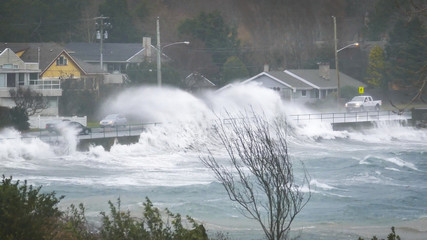
In July 2023, the Muskie School of Public Service launched a new community engagement-focused project to help identify resilience-related workforce skills needed for future-ready Maine public service leaders. The Covid-19 Pandemic brought into focus the need for public service leaders to be trained to manage unexpected change and build flexible, future-ready leadership skills. Those essential workforce skills include the ability to conduct strong, effective information gathering and analysis during times of change and uncertainty, how to plan and network across sectors and fields, ways of integrating diverse systems, people and resources, and best practices for adapting quickly, rebounding and pivoting as needed.
The workforce development project, led by Muskie faculty Dr. Brenda Zollitsch, is currently funded by a grant from the Maine Economic Improvement Fund (MEIF) with the goal of connecting the business community, as well as nonprofits and agencies, with skilled interns and eventually employees to work on resiliency issues. Dr. Zollitsch is working with Muskie graduate assistant Abi Davis to conduct interviews with business and nonprofit leaders in the region, identifying the skills they are seeking for new hires and what kinds of training they would like related to resiliency for their existing employees. This information will be used to inform future course offerings, as well as creating the potential to develop new training opportunities that could reach beyond academic courses to USM-supported workforce workshops and other offerings in the region.
To better prepare graduate students with these skills, the Muskie School is also offering a new core graduate course (PPM 630) to help students build those skills, entitled “Leading Resiliency in Times of Change.” Dr. Zollitsch has worked over the last year to develop the new curriculum and has worked with many leaders in the community. She has recorded a series of resiliency-related interviews for viewing by those in her course. Interviews have included the Deputy Director of the Maine Emergency Management Agency; an Operations Specialist from Central Maine Power; Maine Senate President Troy Jackson; Casco Bay Estuary Partnership’s Executive Director Curtis Bohlen; USM GIS Expert Dr. Matthew Bampton; a Cartographic Expert from the Osher Map Library; Richard Bilodeau, Senior Lecturer of Entrepreneurship and Marketing at USM; and Jim Damicis, Senior Vice President of Camoin Associates. The course pulls expertise from leading resiliency sources, best practices and cases. It also highlights case studies from the Community Resilience Partnership and a newly updated Maine Community Resilience Workbook. Perhaps most compelling, the course is built around scenario-based learning, allowing students to practice resiliency skills with real-world-based scenarios throughout the semester. Dr. Zollitsch says that she is looking forward to continuing to build connections with those working on resiliency projects and tools throughout the region. If you want to connect and share your work or ideas with the project please contact Dr. Zollitsch at brendaz@maine.edu.

